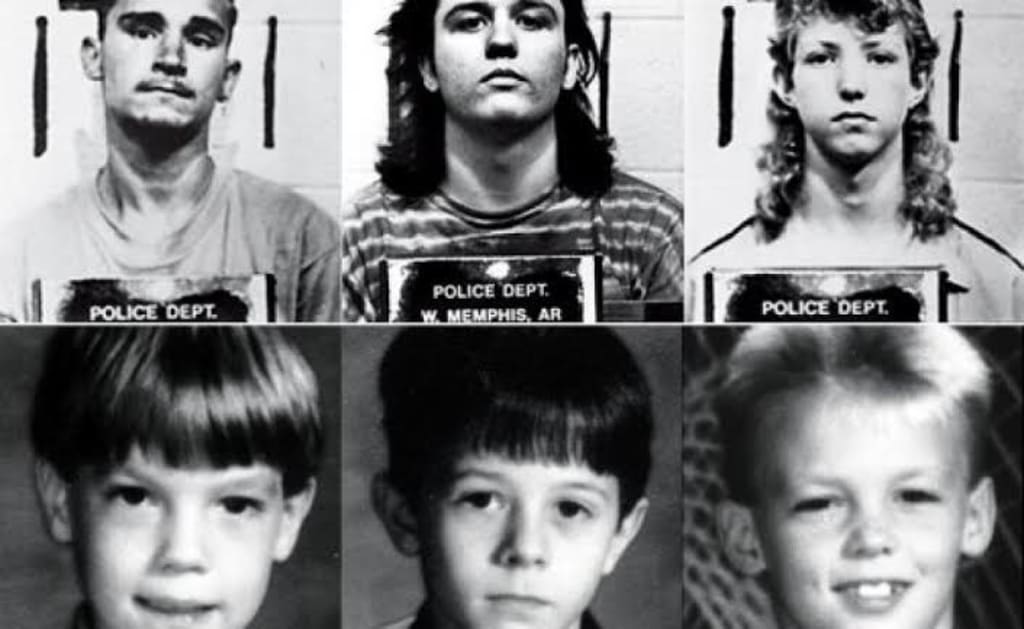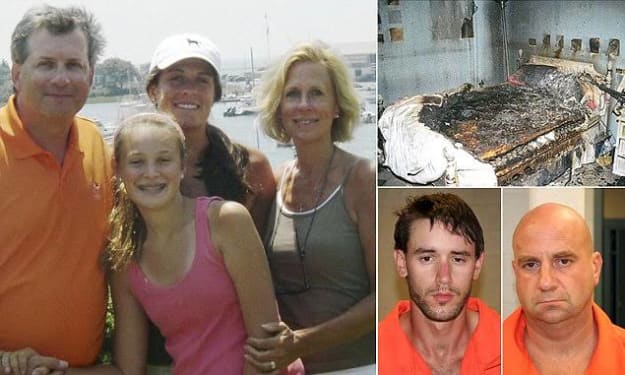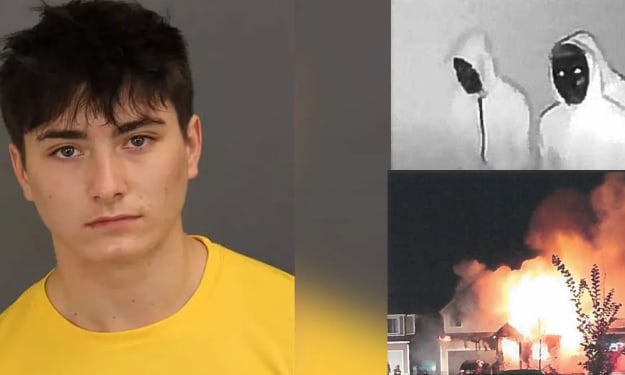The West Memphis Three Case (1993): A Tale of Wrongful Convictions and the Struggle for Justice
The West Memphis Three Case (1993): Three teenagers were wrongfully convicted of the murders of three young boys in West Memphis, Arkansas. The case garnered national attention due to the questionable evidence, leading to debates about wrongful convictions and the flaws in the justice system.

In 1993, the West Memphis Three case shocked the town of West Memphis, Arkansas, and the nation as three teenagers, Damien Echols, Jessie Misskelley Jr., and Jason Baldwin, were wrongfully convicted of the brutal murders of three young boys. The case garnered national attention due to the questionable evidence, leading to debates about wrongful convictions and the flaws in the justice system.
On May 5, 1993, the bodies of three eight-year-old boys - Stevie Branch, Christopher Byers, and Michael Moore - were found bound, mutilated, and left for dead in a wooded area near their neighborhood in West Memphis. The community was devastated, and the pressure on law enforcement to solve the case was immense.
Amidst a lack of substantial leads, the police focused their attention on Echols, Misskelley, and Baldwin, three local teenagers who did not fit into the conservative small-town mold. Damien Echols, with his interest in the occult and alternative fashion, was perceived as an outsider. Jessie Misskelley, with a low IQ, was interrogated for hours without legal counsel and eventually gave a coerced confession. Jason Baldwin, a close friend of Echols, was implicated due to his association with the other two.
Despite the lack of concrete evidence tying the teenagers to the crime scene, they were put on trial. The proceedings were riddled with inconsistencies, questionable evidence, and confessions that were later recanted. Jessie Misskelley's confession, given under duress, had glaring inconsistencies with the crime's details and was not supported by physical evidence. Additionally, no DNA evidence or eyewitness accounts linked the accused to the crime.
Nonetheless, in a controversial trial, the West Memphis Three were found guilty. Damien Echols received a death sentence, and Jessie Misskelley and Jason Baldwin were sentenced to life imprisonment. The convictions sparked outrage and drew national attention from advocates of criminal justice reform, who were concerned about the possibility of wrongful convictions.
Over the years, a movement advocating for the innocence of the West Memphis Three gained momentum. High-profile documentaries, such as "Paradise Lost: The Child Murders at Robin Hood Hills," shed light on the case's inconsistencies and questionable legal practices. Celebrities, legal experts, and activists rallied behind the cause, demanding a reexamination of the evidence and a fair trial for the wrongfully convicted teenagers.
New evidence and advances in forensic technology began to cast serious doubts on the guilt of Echols, Misskelley, and Baldwin. Despite this, the Arkansas judicial system was reluctant to overturn their convictions. It was not until 2011, after years of legal battles and mounting public pressure, that the West Memphis Three were granted an Alford plea, allowing them to maintain their innocence while acknowledging that the prosecution had enough evidence to convict them. This plea paved the way for their release from prison after spending nearly two decades behind bars.
While Echols, Misskelley, and Baldwin regained their freedom, the West Memphis Three case left a profound impact on the justice system. It highlighted the dangers of relying on questionable evidence, rushed investigations, and media sensationalism during criminal trials. The case served as a rallying cry for criminal justice reform, sparking debates about the need for fair trials, improved investigative practices, and the importance of protecting the rights of the accused.
The West Memphis Three's wrongful convictions also raised questions about the role of the media in shaping public opinion and influencing legal outcomes. The case showcased how sensationalist reporting and community pressure can lead to hasty and biased investigations.
As society continues to strive for a more just legal system, the West Memphis Three will forever stand as symbols of the fight for justice and the pursuit of truth. Their case has left an indelible mark on the American justice system, serving as a reminder that the quest for truth and fairness must never be compromised, no matter the severity of the crime or the pressure for swift justice. Only by acknowledging and addressing the flaws in the system can we hope to prevent similar tragedies from occurring in the future.





Comments
There are no comments for this story
Be the first to respond and start the conversation.